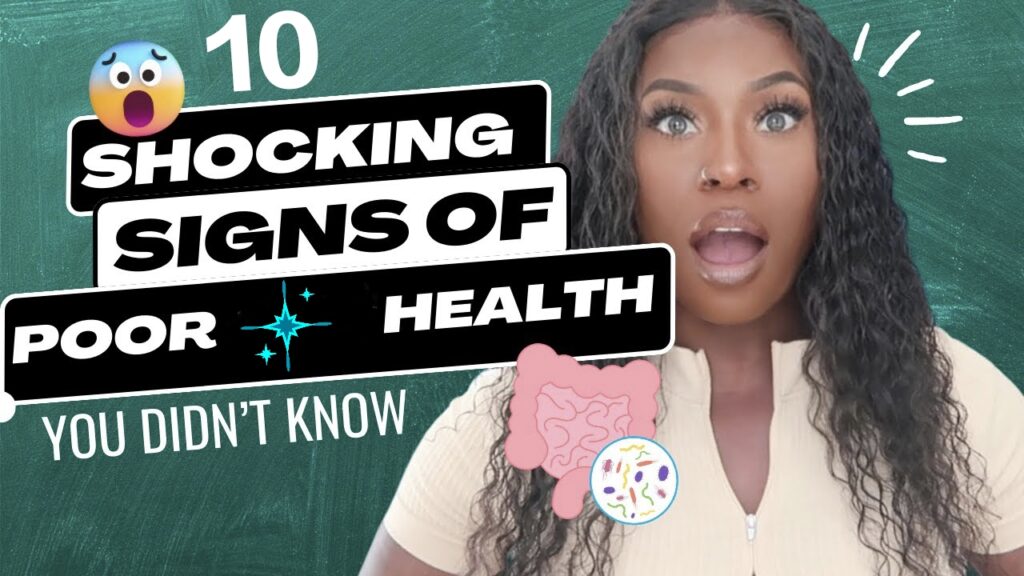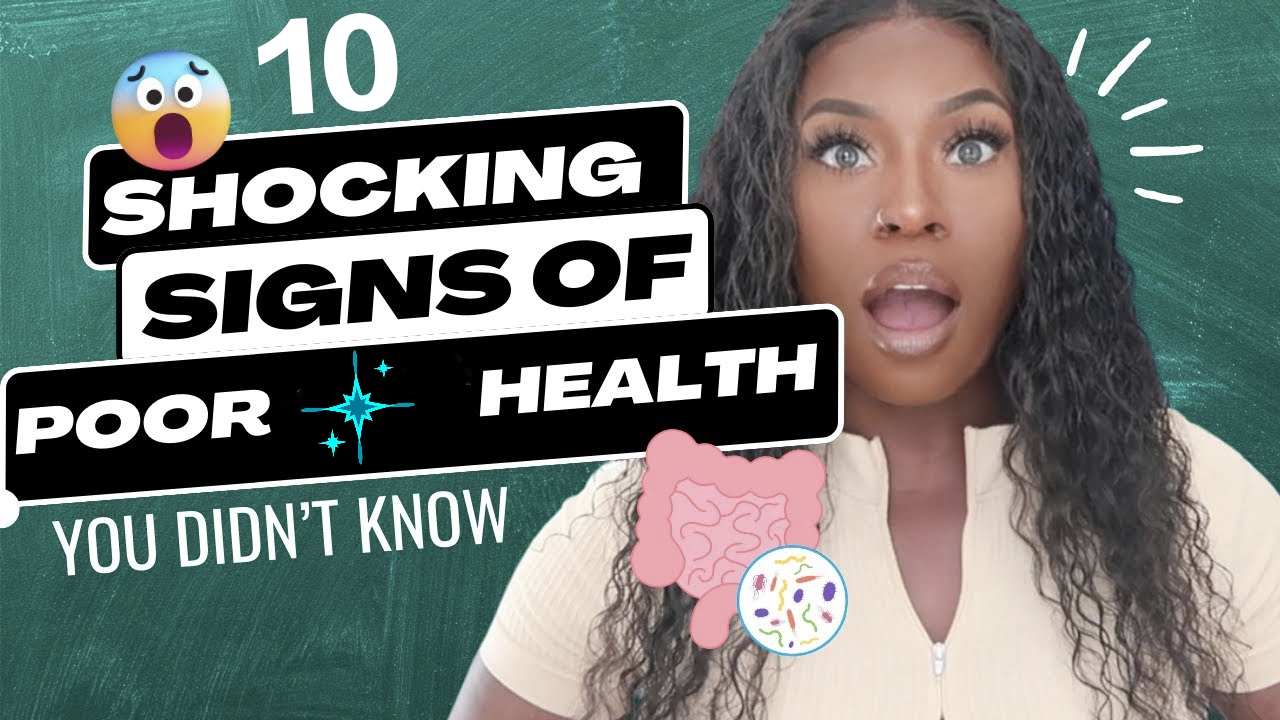Introduction:
Are you feeling unwell but can’t quite put your finger on what’s wrong? Sometimes, poor health can manifest in subtle ways, making it difficult to recognize the signs. In this blog, we’ll explore the top 10 signs of poor health that you shouldn’t ignore. By being aware of these subtle symptoms, you can take proactive steps to address underlying issues and improve your overall health.

1. Persistent Exhaustion:
Feeling tired all the time isn’t just about poor sleep. Chronic fatigue could be a sign of underlying issues like vitamin deficiencies, depression, or thyroid problems. If you’re consistently well-rested yet still exhausted, it’s time to investigate further. Consult with your healthcare provider to rule out underlying medical conditions.

2. Recurring Headaches:
While occasional headaches are normal, frequent episodes could be a red flag. Chronic headaches may be caused by stress, dehydration, or more serious conditions like hypertension or migraines. Keeping a headache journal can help you identify patterns and potential triggers.

3. Poor Skin Health:
Your skin is a reflection of your internal health. Problems like persistent acne, dryness, or a dull complexion might indicate dehydration, nutritional deficiencies, or hormonal imbalances. A healthy diet rich in fruits, vegetables, and omega-3 fatty acids can help improve skin health.

4. Digestive Issues:
Regular discomfort after eating, bloating, gas, constipation, or diarrhea can all signal poor digestive health. These symptoms might be clues to food intolerances, irritable bowel syndrome (IBS), or other gastrointestinal issues. Consider keeping a food diary to track your symptoms and identify potential triggers.

5. Sleep Disturbances:
Difficulty falling asleep or staying asleep can be caused by factors like stress, anxiety, or medical conditions. Chronic sleep issues might also be a sign of sleep apnea or hormonal imbalances. Establish a relaxing bedtime routine and create a sleep-conducive environment to improve sleep quality.

6. Mood Swings:
Extreme or unexplained changes in mood can be more than just bad days. Frequent mood swings might be a symptom of mental health issues like depression or bipolar disorder, or possibly linked to poor diet and stress. Consider seeking professional help if you’re struggling with persistent mood changes.
7. Unexplained Weight Changes:
Sudden weight gain or loss without changes to your diet or exercise habits can be a sign of underlying health issues. Thyroid problems, diabetes, and other metabolic disorders can all cause such fluctuations. Consult with your healthcare provider to rule out underlying medical conditions.
To Know About Top 10 Secret Foods for Better Immunity Read This
8. Shortness of Breath:
Struggling for breath not caused by exercise might be a sign of a cardiovascular or respiratory condition. It’s important to address this symptom early with a healthcare provider. Don’t ignore this symptom, as it can be a sign of a serious underlying condition.
9. Persistent Colds or Flu:
Falling sick often with colds or the flu can indicate a weakened immune system. This could be due to a lack of essential nutrients in your diet, chronic stress, or an underlying health condition. Consider boosting your immune system with a healthy diet, regular exercise, and adequate sleep.
10. High Resting Heart Rate:
A resting heart rate consistently above 100 beats per minute (tachycardia) can be concerning. It’s often associated with cardiovascular health issues or excessive stress levels. Consult with your healthcare provider to rule out underlying medical conditions.
Conclusion:
Recognizing the signs of poor health is crucial for maintaining your well-being. By being aware of these subtle symptoms, you can take proactive steps to address underlying issues and improve your overall health. Don’t ignore these signs – take control of your health today!
By incorporating healthy habits into your daily routine, such as a balanced diet, regular exercise, and adequate sleep, you can reduce your risk of chronic diseases and improve your overall quality of life. Remember, it’s always better to be proactive about your health than to wait until it’s too late.
Read This to Know More About Health
FAQs:
Common signs of poor health include persistent exhaustion, recurring headaches, poor skin health, digestive issues, sleep disturbances, mood swings, unexplained weight changes, shortness of breath, persistent colds or flu, and high resting heart rate.
Persistent exhaustion can be caused by underlying medical conditions like vitamin deficiencies, depression, or thyroid problems, as well as lifestyle factors like poor sleep, stress, and lack of exercise.
Improving skin health can be achieved through a healthy diet rich in fruits, vegetables, and omega-3 fatty acids, staying hydrated, and managing stress.
Common digestive issues include bloating, gas, constipation, diarrhea, and irritable bowel syndrome (IBS).
Improving sleep quality can be achieved through establishing a relaxing bedtime routine, creating a sleep-conducive environment, avoiding caffeine and electronics before bedtime, and getting regular exercise.
Signs of a weakened immune system include frequent illnesses, persistent colds or flu, and recurring infections.
Boosting the immune system can be achieved through a healthy diet rich in fruits, vegetables, and whole grains, regular exercise, adequate sleep, and managing stress.
A normal resting heart rate is typically between 60-100 beats per minute (bpm).
Consult a healthcare professional if you experience any persistent or severe symptoms, or if you have concerns about your overall health and well-being.
